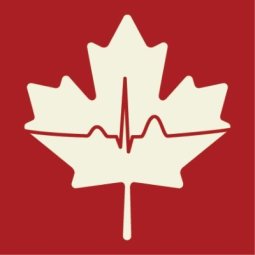Ackermann, R. and Carroll A. Annals of Internal Medicine. Vol. 148 (7); 566 2008.
Background: The increasing costs of health care and health insurance have concerned Americans for some time. The number of uninsured Americans increased by 2.2 million to 47 million in the most recent census. This is the largest increase reported by the U.S. Census Bureau since 1992. In a 2002 survey of physicians, it was reported that 49% supported government legislation to establish national health insurance.
Objective: To determine whether physician opinion has changed in the 5 years since the 2002 survey by assessing 1) physicians’ support for government legislation to establish national health insurance and 2) physicians’ support for achieving universal coverage instead through more incremental reform.
Methods: Random sample of 5000 physicians from the American Medical Association Masterfile. A survey was sent to gauge physician opinion of national health insurance and whether incremental measures or national health insurance were best used to achieve this. Respondents answered using a 5-point Likert scale. Part of the survey was identical to a previous one conducted in 2002.
Results: Of 5000 mailed surveys, 2193 were received from 4294 eligible participants (response rate of 51%). Respondents did not differ significantly from nonrespondents in gender, age, degree type, or specialty. A total of 59% support legislation to establish national health insurance as compared to 55% who supported achieving universal coverage through more incremental reform. Current overall support for national health insurance (59%) increased by 10 percentage points since 2002 (49%). Only 14% of physicians were opposed to national health insurance but supported more incremental reforms. Support increased in every subspecialty since 2002, with the exception of pediatric subspecialists, who were highly supportive of national health insurance rather than incremental reforms in both surveys.
Limitations: The survey asked only two questions and thus a comprehensive profile of physician attitudes and beliefs concerning universal coverage was not revealed. Further surveys on the matter may provide a richer understanding. Universal coverage for health care has received much media attention and debate as it has become part of the platform of two high-profile Democratic Presidential nominees. It could be that physicians are influenced by public opinion and media attention on the matter.
Conclusion: A majority of physicians in the United States support government legislation to establish national health insurance. Support exceeded more than 50% among all physicians, with the exception of surgical subspecialties, anesthesiologists, and radiologists.
Relevance: As physicians in Canada weigh the pros and cons of introducing market-based reforms, including privatization, that would inevitably affect universality and equity, it is interesting to see that most American physicians, regardless of subspeciality, increasingly favour government legislation to establish national health insurance. The magnitude of patients who are uninsured, and thus cannot receive adequate care, concerns all healthcare practitioners in the United States.
Available online: http://www.annals.org/cgi/content/full/139/10/795
